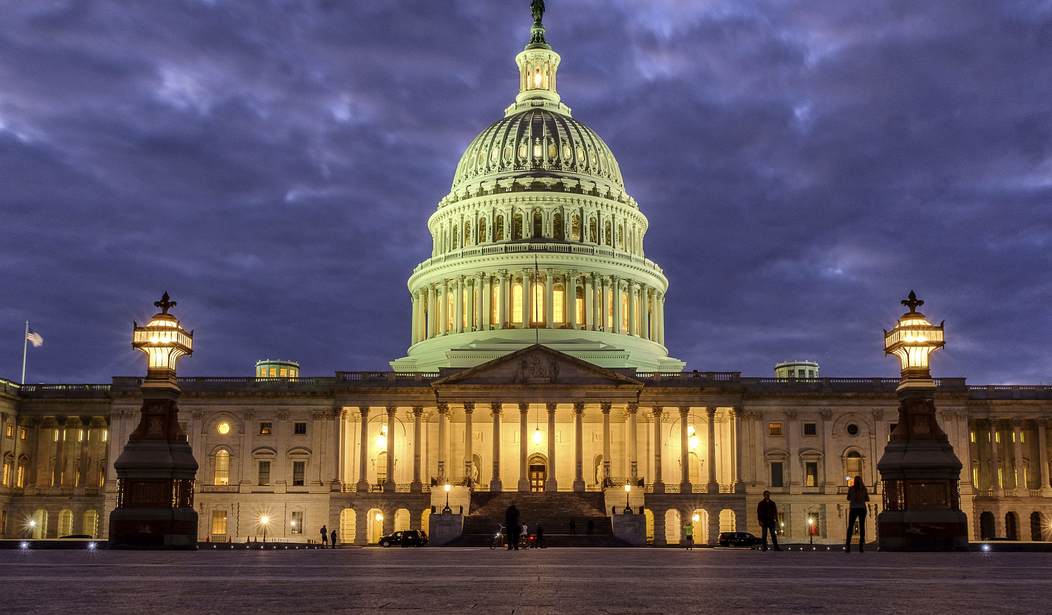America is often described as a constitutional democracy or constitutional republic. That's not really true. The best you could say is that our system is constitutional-ish.
Consider the bizarre controversy over President Donald Trump's decision to pull out of Syria. As a matter of policy, I think it's a terrible decision he will live to regret. Nearly every foreign policy expert feels the same way, including -- if reports are true -- military leadership and the president's own National Security Council.
Outside of a few negligible but reliable boosters such as perennially dovish Sen. Rand Paul (R-Ky.), everyone thinks this amounts to a reprieve for ISIS and a betrayal of the Kurds, who've done much of the heavy fighting for us. Of course, the Iranian mullahs, Russian dictator Vladimir Putin, Turkish president for life Recep Tayyip Erdogan and Syrian butcher Bashar al-Assad are all gleeful.
But as unfathomable as the president's policy decision may be, the constitutional context in which he made it is far weirder.
On both sides of the aisle, congressional leaders are denouncing the president's decision, largely for the reasons stated above. But take a step back and consider the fact that all of these outraged senators and congressmen are furious about the president retreating from a war they did not authorize.
The Constitution is very clear: Congress -- and only Congress -- has the power to declare war. It hasn't formally declared war since World War II (1942, to be exact, when it declared war on German-allied Bulgaria, Hungary and Romania). Since then, it has sometimes used phrases like the "authorization of military force," and other times presidents have acted unilaterally, invoking U.N. resolutions or really almost nothing at all. To the extent that Congress has complained, the outrage has usually been partisan. Congressional Democrats hate it when Republican presidents don't get their approval, and vice versa.
Recommended
The so-called war on terror, well into its 18th year, is a sprawling enterprise around the globe (one I largely support as a matter of policy), tenuously justified by constitutionally flimsy pronouncements by Congress. The Authorization for Use of Military Force Against Terrorists passed after 9/11 doesn't cover ISIS in Syria (or Africa, or the Philippines, or cyberspace).
The president basically has carte blanche to wage war -- and retreat from it -- without any real congressional sanction. President Obama invaded Syria without congressional authorization. President Trump ramped up that war without congressional authorization. And now he wants to pull out without congressional authorization.
War is just the most grave and appalling example of bipartisan congressional cowardice. Congress gave the president almost unilateral authority over trade decades ago, even though the Commerce Clause gives Congress total authority over trade, both foreign and domestic. I understand why many support the president's trade policies toward China, but why Congress yawned as the president invoked national security threats to wage trade wars with Canada or the EU is a different matter.
Again, this isn't about Trump. Congress has been surrendering vast swaths of its constitutional authority to the president, to the courts and to a permanent bureaucracy for a century. Indeed, critics of the Mueller probe have a point when they complain that the executive branch should not be conducting what is in effect an impeachment inquiry. We've stumbled into this bizarre situation because Congress handed over much its oversight of the presidency to the Department of Justice and the FBI, which did not even exist until 1870 and 1908, respectively.
The Founders never imagined that Congress would just give away so much of its power. James Madison wrote in Federalist No. 48 that Congress would always be "extending the sphere of its activity and drawing all power into its impetuous vortex."
While the problem has been worsening for generations, the era of cable television and social media has put the trend into overdrive. The legislative branch is often little more than a peanut gallery -- a parliament of pundits, as I've often called it -- full of people who use their office as a way to get on TV or as a stepping stone to a presidential bid.
Schools often teach that we have three "co-equal" branches of government. But that's not what the Constitution established. Congress is the first and supreme branch of government, with the power to declare war, write laws, create all of the courts save the Supreme Court, and raise taxes.
We don't live in that Constitutional system. We live in a constitutional-ish one.

























Join the conversation as a VIP Member